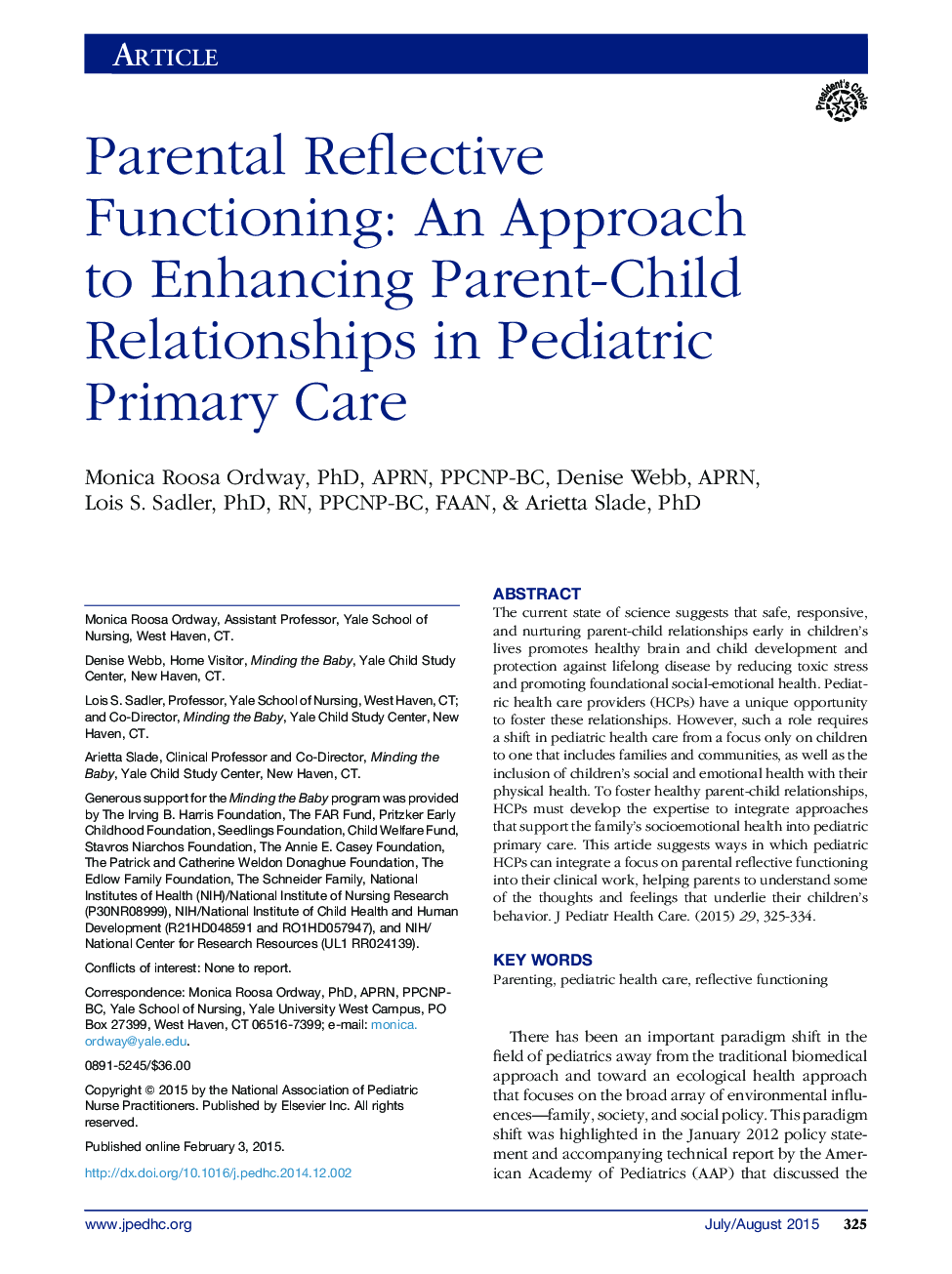| Article ID | Journal | Published Year | Pages | File Type |
|---|---|---|---|---|
| 2662709 | Journal of Pediatric Health Care | 2015 | 10 Pages |
The current state of science suggests that safe, responsive, and nurturing parent-child relationships early in children's lives promotes healthy brain and child development and protection against lifelong disease by reducing toxic stress and promoting foundational social-emotional health. Pediatric health care providers (HCPs) have a unique opportunity to foster these relationships. However, such a role requires a shift in pediatric health care from a focus only on children to one that includes families and communities, as well as the inclusion of children's social and emotional health with their physical health. To foster healthy parent-child relationships, HCPs must develop the expertise to integrate approaches that support the family's socioemotional health into pediatric primary care. This article suggests ways in which pediatric HCPs can integrate a focus on parental reflective functioning into their clinical work, helping parents to understand some of the thoughts and feelings that underlie their children's behavior.
